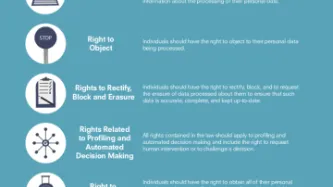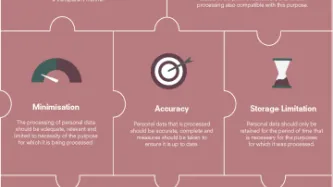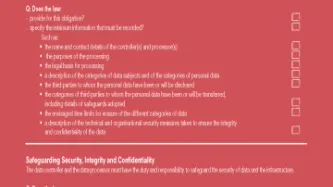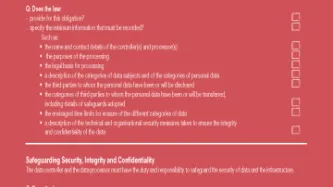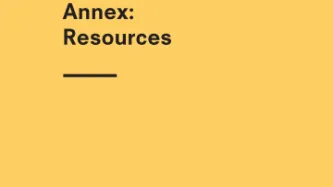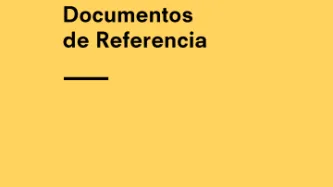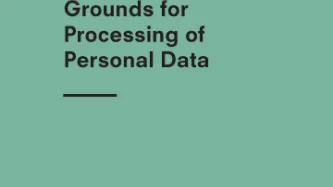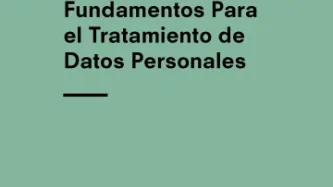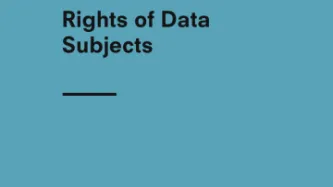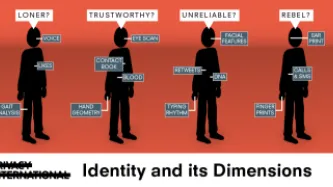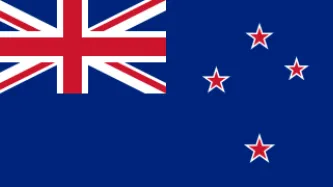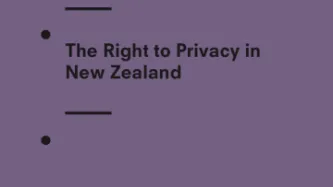Advanced Search
Content Type: Report
This part of “The Keys to Data Protection” provides links to further resources and outlines avenues for engagement which we hope will encourage more civil society organisations to engage in policy developments and legal processes on data protection.
Content Type: Report
Esta parte de "Las Claves para Mejorar la Protección de Datos" proporciona enlaces a recursos adicionales y describe las vías de participación para mejorar el involucramiento de las organizaciones de la sociedad civil en estos temas.
Content Type: Report
This part of “The Keys to Data Protection” outlines the models and structures as well as powers and functions of an independent supervisory authority, which plays an essential role as an independent oversight and enforcement mechanism of data protection law.
Content Type: Report
Esta parte de "Las Claves para Mejorar la Protección de Datos" describe los modelos y estructuras, así como los poderes y funciones de una autoridad de supervisión independiente.
Content Type: Report
This part of “The Keys to Data Protection” presents the responsibilities, obligations, and liability of those who process personal data, to ensure data controllers and processors are held accountable under the law.
Content Type: Report
Esta parte de "Las Claves para Mejorar la Protección de Datos" presenta las responsabilidades, obligaciones y responsabilidades de quienes procesan datos personales, para garantizar que sean responsables ante la ley.
Content Type: Report
This part of “The Keys to Data Protection” outlines and explains the legal basis permitted for the processing of personal data, which should be limited and clearly articulated in law.
Content Type: Report
Esta parte de "Las Claves para Mejorar la Protección de Datos" describe y explica la base legal permitida para el procesamiento de datos personales, que debe estar limitada y claramente articulada en la ley.
Content Type: Report
This part of “The Keys to Data Protection” presents eight key rights for individuals (also known as ‘data subjects’) that should be followed and enforced by those who process personal data, including the right to access, the right to object, and the right to an effective remedy.
Content Type: Report
Esta parte de "Las Claves para Mejorar la Protección de Datos" presenta los derechos clave para los titulares de protección de datos personales, que deben ser respetados y aplicados por quienes procesan efectúan tratamiento de datos.
Content Type: Report
This part of “The Keys to Data Protection” presents what should be provided for in the general provisions of a data protection law including the object and purpose of the law and definitions.
Content Type: Report
Esta parte de "Las Claves para Mejorar la Protección de Datos" presenta disposiciones generales para una ley de protección de datos, que incluyen el objeto y el propósito de la ley y las definiciones básicas que debe contener.
Content Type: Report
This part of “The Keys to Data Protection” presents and explains seven key data protection principles, derived from regional and international frameworks, covering elements such as minimisation, storage limitation, and accountability.
Content Type: Report
Esta parte de "Las Claves para Mejorar la Protección de Datos" presenta y explica siete principios clave para la protección de datos personales, derivados de marcos regionales e internacionales en la materia.
Content Type: Report
This part of “The Keys to Data Protection” explains what data protection is, why it is needed, and how to works. It also outlines why it is essential for the exercise of the right to privacy. This part also provides a brief outline of data protection in practice.
Content Type: Report
Esta parte de "Las Claves para Mejorar la Protección de Datos" explica qué es la protección de datos, por qué se necesita y cómo trabajar estos temas. También describe por qué la protección de datos es esencial para el ejercicio del derecho a la privacidad.
Content Type: Long Read
The Sustainable Development Goals (SDGs) are the United Nations-led initiative to define the development agenda. Building on the eight Millennium Development Goals, the SDG’s 17 goals – and the 169 targets – serve as an opportunity to tackle many of the most pressing issues in the world today. The SDGs are also explicitly grounded in human rights. Goal 16 on “peace, justice, and sustainable institutions” aims to “Promote peaceful and inclusive societies for sustainable development, provide…
Content Type: News & Analysis
This post was written by William Marks, a former volunteer at Privacy International.
The right to privacy is central to the protection of human dignity, and supports and reinforces other rights, such as the right to freedom of expression and association. Privacy International, supported by the International Human Rights Clinic at Harvard Law School, recently submitted a joint stakeholder report to the United Nations Human Rights Council regarding New Zealand’s protection of the right to…
Content Type: News & Analysis
Around the world, from North America to Europe and Asia, governments are starting to roll out smart meters. While the technology promises increased energy efficiency through greater consumer control over energy consumption, smart meters also raise serious privacy concerns. Smart meters collect energy usage data at high frequencies - typically every five, fifteen or 30 minutes. That level of granularity reveals how much electricity is being used in a home and when, which in turn can paint an…
Content Type: News & Analysis
This month Brazil adopted a new data protection law, joining the ranks of more than 120 countries which have adopted such legislation, providing individuals with rights against the exploitation of their personal data. But after a veto from the Brazilian president, the law lacks an independent authority in charge of its application, which can severely undermine its impact.
When drafting data protection bills, one of the most important and often politically contentious issue tends to be their…
Content Type: Long Read
Privacy International’s new report shows how countries with powerful security agencies are training, equipping, and directly financing foreign surveillance agencies. Driven by advances in technology, increased surveillance is both powered by and empowering rising authoritarianism globally, as well as attacks on democracy, peoples’ rights, and the rule of law.To ensure that surveillance powers used by governments are used to protect rather than endanger people, it is essential that the public,…
Content Type: Advocacy
This Universal Periodic Review stakeholder report is a submission by Privacy International presented to raise concerns regarding the situation of the violation of the right to privacy in New Zealand as part of the 32nd session of the Universal Periodic Review (UPR) Working Group.
